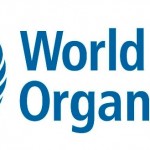 The World Health Organisation has announced it had convened emergency talks on the enigmatic, deadly Mers virus, which is striking hardest in Saudi Arabia.
The World Health Organisation has announced it had convened emergency talks on the enigmatic, deadly Mers virus, which is striking hardest in Saudi Arabia.
The move comes amid concern about the potential impact of October’s Haj pilgrimage, when millions of people from around the globe will head to and from Saudi Arabia.
WHO health security chief Keiji Fukuda said the Mers meeting would take place on Tuesday in the form of a telephone conference of officials from affected countries and global experts.
Fukuda told reporters it was a “proactive move”.
“It means that if in the future we do see some kind of explosion, or some big outbreak, or we think the situation has really changed, we will already have a group of emergency committee experts who are really up to speed, so we don’t have to go through a steep learning curve,” he said.
The meeting could decide whether to label Mers an international health emergency, he added.
The WHO has not recommended any Mers-related travel restrictions but says countries should monitor unusual respiratory infection patterns.
The first recorded Mers death was in June 2012 in Saudi Arabia. The number of infections has ticked up, with almost 20 per month in April, May and June taking it to 79.
“Right now, we’re seeing this steady pattern of cases. We’re not in the midst of any acute event right now,” Fukuda stressed.
So far 43 Mers patients have died — 54 per cent, compared to nine per cent of the 8,273 recorded case of Sars, which erupted in Asia in 2003.
Experts are struggling to understand Mers, short for Middle East Respiratory Syndrome coronavirus.
It shares the flu-like symptoms of its cousin Sars, or Severe Acute Respiratory Syndrome, but differs in that it causes kidney failure.
Like Sars, Mers is thought to have jumped from animals to humans.
It seems deadliest for older men who already have other medical conditions, and can spread between humans, but appears far less contagious than Sars for now.
“We are not seeing it sweep through communities,” Fukuda said. “There are no big explosions going on right now.
“But because we have gaps in the information, it makes it very hard to peer into the future.”
The annual Haj is one of the globe’s largest gatherings, raising concern that Mers could spread among pilgrims at Islam’s two holiest Muslim sites of Makkah and Madinah, before being carried back to their homelands.
Both Saudi Arabia and the WHO note that lower-scale, year-round Umrah pilgrimages have not spread Mers.
“I think we’re always worried in a globalised world that infection can travel from one country to another,” said Fukuda.
“But if you disrupt travel, you slow travel, you also create another set of stresses, concerns and problems. So in looking at this situation, we try to balance both of those things.”
The Mers meeting will be only the second time the WHO has activated a new system known as the International Health Regulations Emergency Committee, created after the SARS crisis sparked global panic over emerging viruses.
The last was during the 2009 H1N1 influenza outbreak, which is believed to have claimed tens of thousands of lives, raising fears of a pandemic like Spanish Flu, which killed millions after the First World War.
Source: gulfnews.com

















